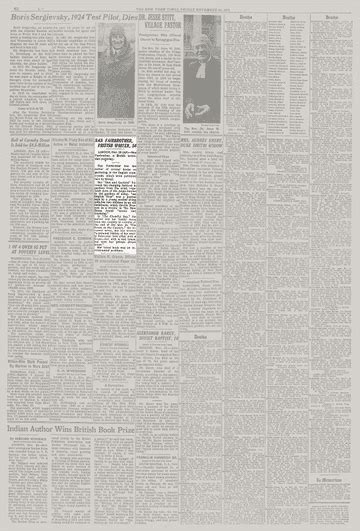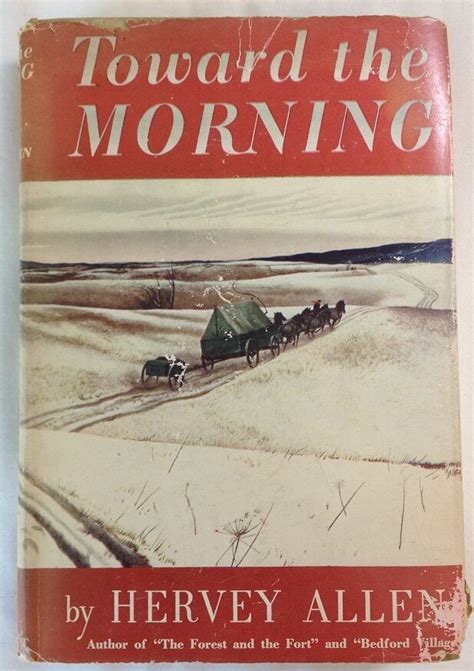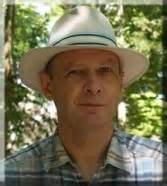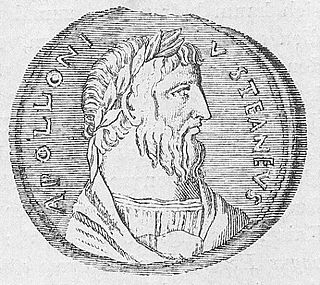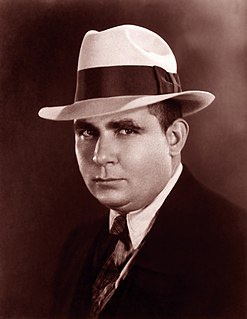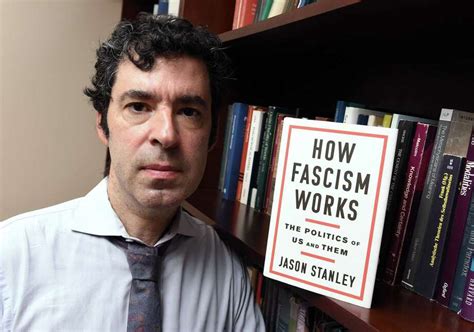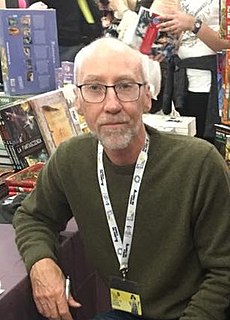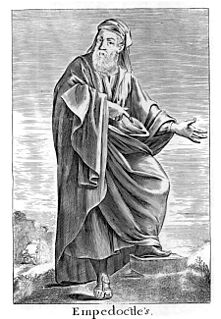Top 907 Philosopher Quotes & Sayings - Page 13
Explore popular Philosopher quotes.
Last updated on April 20, 2025.
I started my professional life as a philosopher of language and for several years took the orthodox line that meaning is an essentially linguistic phenomenon. Whether as a result of simply listening to everyday talk about meaning, or reading books of anthropology, sociology and art history, it dawned on me that there is nothing at all privileged or central about linguistic meaning.
It seems to me that your doctor [Tronchin] is more of a philosopher than a physician. As for me, I much prefer a doctor who is anoptimist and who gives me remedies that will improve my health. Philosophical consolations are, after all, useless against real ailments. I know only two kinds of sickness--physical and moral: all the others are purely in the imagination.
King René of Anjou [(1409-80)]was a strange compound of amiable, great and trifling qualities. He was so excellent a sovereign as to acquire the surnom of the Good. He was brave in war, delighted in tournaments and wrote on them, instituted festivals and processions, partly religious and partly burlesque, was a fond husband, a romantic lover, a good painter for that age, and a true philosopher.
You can be horrified by the state of the prisons, the misery in certain neighborhoods of its cities, or their level of poverty. Anti-Americanism, by which I mean a hatred for America as such-its transformation into a metaphysical category, which incarnates all the evil in the world-is one of fascism's favorite themes. Look at writer and political theorist Charles Maurras in France. The philosopher Martin Heidegger in Germany. The radical Islamists of today!
When a philosopher, scientist, or psychologist discusses the discrepancy between the actual and the ideal, he or she attempts to convince us with the tools of discursive thought ... An artist does it differently ... their primary approach is different, even though both groups, if you will, are investigating the actual, the ideal, and the discrepancy in between.
Cornelius Castoriadis, the great French social philosopher of Greek origin, was asked once by an exasperated interviewer: "What do you want, Mr. Castoriadis - to change humanity?" He answered: "No, God forbid, I only want humanity to change itself, as it has done so many times in the past." I would be inclined to answer the same way.
I am a man and alive. For this reason I am a novelist. And, being a novelist, I consider myself superior to the saint, te scientist, the philosopher, and the poet, who are all great masters of different bits of man alive, but never get the whole hog....Only in the novel are all things given full play.
Gary Greenberg is a thoughtful comedian and a cranky philosopher and a humble pest of a reporter, equal parts Woody Allen, Kierkegaard, and Columbo. The Book of Woe is a profound, and profoundly entertaining, riff on malady, power, and truth. This book is for those of us (i.e. all of us) who've ever wondered what it means, and what's at stake, when we try to distinguish the suffering of the ill from the suffering of the human.
Hilary Putnam died of cancer at the age of 89. Those of us who had the good fortune to know Putnam as mentees, colleagues, and friends remember his life with profound gratitude and love, since Hilary was not only a great philosopher, but also a human being of extraordinary generosity, who really wanted people to be themselves, not his acolytes.
Between the villages of Aubiere and Romagnat in the ancient Province of Auvergne there is an old road that comes suddenly over the top of a high hill. To stand south of this ridge looking up at the highway flowing over the skyline is to receive one of those irrefutable impressions from landscape which requires more than a philosopher to explain. In this case it is undoubtedly, for some reason, one of exalted expectation.
.. the word ecology, coined by the German biologist and philosopher Ernst Haeckel (initially as oecology) in 1866. derives from the Greek oikos, "referring originally to the family household and its daily operations and maintenance." The term ecology is therefore intended to refer to the study of the conditions of existence that pertain to, and the interactions between, all the entities that make up our larger, cosmic household here upon earth.
Philosopher Bertrand Russell suggested that 'Men are born ignorant, not stupid. They are made stupid by education.' And, it was Albert Einstein who explained, 'Insanity: doing the same thing over and over again and expecting different results.' So which is it - stupidity, ignorance or insanity - that explains the behavior of my fellow Americans who call for greater government involvement in our lives?
Philosophy is the art of dying.Philosophy is an activity that has always been concerned with how one seizes hold of one's mortality, and I see myself continuing a very ancient tradition that goes back to Socrates and Epicurus, which is that to be a philosopher is to try and learn how to die. In learning how to die, one learns how to live.
It's strange that in an age when we pride ourselves on our independence of thought we meekly submit without further question to the declaration of a clearly unbalanced nineteenth century philosopher that God is dead! That's cheeky, of course - and one rarely comes away from reading Nietzsche without learning something new and significant. He's certainly FAR more unsettling for faith than any contemporary atheist I know of.
One could say that what differentiates ancient from modern philosophy is the fact that, in ancient philosophy, it was not only Chrysippus or Epicurus who, just because they had developed a philosophical discourse, were considered philosophers. Rather, every person who lived according to the precepts of Chrysippus or Epicurus was every bit as much a philosopher as they.
I intend Deaths in Venice to contribute both to literary criticism and to philosophy. But it's not "strict philosophy" in the sense of arguing for specific theses. As I remark, there's a style of philosophy - present in writers from Plato to Rawls - that invites readers to consider a certain class of phenomena in a new way. In the book, I associate this, in particular, with my good friend, the eminent philosopher of science, Nancy Cartwright, who practices it extremely skilfully.
When the boy begins to understand that the visible point is preceded by an invisible point, that the shortest distance between two points is conceived as a straight line before it is ever drawn with pencil and paper...the fountain of all thought has been opened to him...the philosopher can reveal him nothing new, as a geometrician he has discovered the basis of all thought.
It might be suggested, and not easily disproven that anything, no matter how exotic, can be believed by someone. On the other hand, abstract belief is largely impossible; it is the concrete, the actuality of the cup, the candle, the sacrificial stone, which hardens belief; the statue is nothing until it cries, the philosophy is nothing until the philosopher is martyred.
A dining club which I was involved in at Oxford University invited Sir Isaiah Berlin to dinner, who I believe was probably the greatest liberal philosopher in the 20th century. I sat beside him and we spoke about liberal philosophy and the events of the 20th century all night over dinner - it was unforgettable!
When they asked some old Roman philosopher or other how he wanted to die, he said he would open his veins in a warm bath. I thought it would be easy, lying in the tup and seeing the redness flower from my wrists, flush after flush through the clear water, till I sank into sleep under a surface gaudy as poppies.
He was . . . a strange blending of Puritan and Cavalier, with a touch of the ancient philosopher, and more than a touch of the pagan. . . . A hunger in his soul drove him on and on, an urge to right all wrongs, protect all weaker things. . . . Wayward and restless as the wind, he was consistent in only one respect—he was true to his ideals of justice and right. Such was Solomon Kane.
Many people have written about the economic meaning of globalization; in One World Peter Singer explains its moral meaning. His position is carefully developed, his tone is moderate, but his conclusions are radical and profound. No political theorist or moral philosopher, no public official or political activist, can afford to ignore his arguments.
The leap of faith is a strategic impasse that confronts every Christian in search of converts; and, as he sees the matter, there is no wrong way to become a Christian. It is the end that is importnat, not the means; it does not matter why you believe, so long as you believe. For the philosopher, in contrast, the paramount issue is the justification of belief, not the fact of belief itself.
A few modern philosopher's assert that an individual's intelligence is a fixed quantity, a quantity which cannot be increased. We must protest and react against this brutal pessimism.... With practice, training, and above all, method, we manage to increase our attention, our memory, our judgment and literally to become more intelligent than we were before.
There is no art or science that is too difficult for industry to attain to; it is the gift of tongues, and makes a man understood and valued in all countries, and by all nations; it is the philosopher's stone, that turns all metals, and even stones, into gold, and suffers not want to break into its dwelling; it is the northwest passage, that brings the merchant's ships as soon to him as he can desire: in a word, it conquers all enemies, and makes fortune itself pay contribution.
That he liked to think of himself as a philosopher. That he questioned all things, even the most simple, to the extent that when someone passing him on the street raised his hat and said, 'Good day,' Litvinoff often paused so long to weigh evidence that by the time he'd settled on an answer the person had gone on his way, leaving him standing alone.
The mathematic, then, is an art. As such it has its styles and style periods. It is not, as the layman and the philosopher (who is in this matter a layman too) imagine, substantially unalterable, but subject like every art to unnoticed changes form epoch to epoch. The development of the great arts ought never to be treated without an (assuredly not unprofitable) side-glance at contemporary mathematics.
In my acquaintance with John Rawls, I found him to be a simple and honest man, who just by chance also happened to be the greatest moral philosopher of the twentieth century. I would like to think that I could emulate at least his modesty - his refusal to exaggerate his perception of himself and his place in the larger scheme of things - even if my work never compares with his in its importance.
If you would learn to speak all tongues and conform to the customs of all nations, if you would travel farther than all travellers, be naturalized in all climes, and cause the Sphinx to dash her head against a stone, even obey the precept of the old philosopher, and Explore thyself. Herein are demanded the eye and the nerve. Only the defeated and deserters go to the wars, cowards that run away and enlist.
With the rise of capitalism, it became more obvious that people pursue individual self-interest. The great nationalist in Italy, Giuseppe Mazzini, a wonderful philosopher, said that we need the nation. We need something that people can lean on, from which they can then reach out to the whole world. The idea of all humanity is too vague. It can't motivate human aspiration in a reliable way.
To the best of my recollection, I became a philosopher because my parents wanted me to become a lawyer. It seems to me, in retrospect, that there was much to be said for their suggestion. On the other hand, many philosophers are quite good company; the arguments they use are generally better than the ones that lawyers use; and we do get to go to as many faculty meetings as we like at no extra charge.
An Italian philosopher said that "time was his estate"; an estate indeed which will produce nothing without cultivation, but will always abundantly repay the labors of industry, and generally satisfy the most extensive desires, if no part of it be suffered to lie in waste by negligence, to be overrun with noxious plants, or laid out for show rather than for use.
In the high school classroom you are a drill sergent, a rabbi, a shoulder to cry on, a disciplinarian, a singer, a low-level scholar, a clerk, a referee, a clown, a counselor, a dress-code enforcer, a conductor, an apologist, a philosopher, a collaborator, a tap dancer, a politician, a therapist, a fool, a traffic cop, a priest, a mother-father-brother-sister-uncle-aunt, a bookeeper, a critic, a psychologist, the last straw.
Then a miracle occurred in the form of a plate of sandwiches. Geryon took three and buried his mouth in a delicious block of white bread filled with tomatoes and butter and salt. He thought about how delicious it was, how he liked slippery foods, how slipperiness can be of different kinds. I am a philosopher of sandwiches, he decided. Things good on the inside.
We all experience many freakish and unexpected events - you have to be open to suffering a little. The philosopher Schopenhauer talked about how out of the randomness, there is an apparent intention in the fate of an individual that can be glimpsed later on. When you are an old guy, you can look back, and maybe this rambling life has some through-line. Others can see it better sometimes. But when you glimpse it yourself, you see it more clearly than anyone.
The philosopher forms his principles on an infinity of particular observations. He does not confuse truth with plausibility, he takes for truth what is true, for false what is false, for doubtful what is doubtful, and probable what is probable. The philosophical spirit is thus a spirit of observation and accuracy.
The philosopher is like a man fasting in the midst of universal intoxication. He alone perceives the illusion of which all creatures are the willing playthings; he is less duped than his neighbor by his own nature. He judges more sanely, he sees things as they are. It is in this that his liberty consists - in the ability to see clearly and soberly, in the power of mental record.
I think that the philosopher must, for his own purposes, carry methodological strictness to an extreme when he is investigating and pursuing his truths, but when he is ready to enunciate them and give them out, he ought to avoid the cynical skill with which some scientists, like a Hercules at the fair, amuse themselves by displaying to the public the biceps of their technique.
Philosophy and science have not always been friendly toward the idea of God, the reason being they are dedicated to the task of accounting for things and are impatient with anything that refuses to give an account of itself. The philosopher and the scientist will admit that there is much that they do not know; but that is quite another thing from admitting there is something which they can never know, which indeed they have no technique for discovering.
Scientists are people of very dissimilar temperaments doing different things in very different ways. Among scientists are collectors, classifiers and compulsive tidiers-up; many are detectives by temperament and many are explorers; some are artists and others artisans. There are poet-scientists and philosopher-scientists and even a few mystics.
You know, there’s a philosopher who says, “As you live your life, it appears to be anarchy and chaos, and random events, non-related events, smashing into each other and causing this situation or that situation, and then, this happens, and it’s overwhelming, and it just looks like what in the world is going on ? And later, when you look back at it, it looks like a finely crafted novel. But at the time, it don’t.
Some philosophers are drawn to the subject [of philosophy] via their interest in the nature and structure of the world external to us. Others are drawn to it by an interest in the capacities that make humans distinctive in the world. I am a philosopher of the latter sort. My work thus far has been clustered around the nexus of knowledge, communication, and human action.
The policy of the emperors and the senate, as far as it concerned religion, was happily seconded by the reflections of the enlightened, and by the habits of the superstitious, part of their subjects. The various modes of worship, which prevailed in the Roman world, were all considered by the people, as equally true; by the philosopher, as equally false; and by the magistrate, as equally useful. And thus toleration produced not only mutual indulgence, but even religious concord.
There is a form of laughter that springs from the heart, heard every day in the merry voice of childhood, the expression of a laughter - loving spirit that defies analysis by the philosopher, which has nothing rigid or mechanical in it, and totally without social significance. Bubbling spontaneously from the heart of child or man. Without egotism and full of feeling, laughter is the music of life.
More than one philosopher has claimed that we ever remain children, far beneath the indurated layers that make up the armour of adulthood. Armour encumbers, restricts the body and soul within it. But it also protects. Blows are blunted. Feelings lose their edge, leaving us to suffer naught but a plague of bruises, and, after a time, bruises fade.
The revolutionary spirit is mighty convenient in this, that it frees one from all scruples as regards ideas. Its hard absolute optimism is repulsive to my mind by the menace of fanaticism and intolerance it contains. No doubt one should smile at these things; but, imperfect Esthete, I am no better Philosopher. All claim to special righteousness awakens in me that scorn and anger from which a philosophical mind should be free.
Various accounts of Empedocle's death are given in ancient sources. His enemies said that his desire to be thought a god led him to throw himself into the crater of Mount Etna so that he might vanish from the world completely and thus lead men to believe he had achieved apotheosis. Unfortunately the volcano defeated his design by throwing out one of the philosopher's sandals.
Philosophy, certainly, is some account of truths the fragments and very insignificant parts of which man will practice in this workshop; truths infinite and in harmony with infinity, in respect to which the very objects and ends of the so-called practical philosopher will be mere propositions, like the rest.
Success has always been the greatest liar - and the "work" itself is a success; the great statesman, the conqueror, the discoverer is disguised by his creations, often beyond recognition; the "work," whether of the artist or the philosopher, invents the man who has created it, who is supposed to have create it; "great men," as they are venerated, are subsequent pieces of wretched minor fiction
Actuated by these motives, and apprehensive of disturbing the repose of an unsettled reign, Julian surprised the world by an edict which was not unworthy of a statesman or a philosopher. He extended to all the inhabitants of the Roman world the benefits of a free and equal toleration; and the only hardship which he inflicted on the Christians was to deprive them of the power of tormenting their fellow-subjects, whom they stigmatised with the odious titles of idolaters and heretics.
My first degree was in mathematics. That was great, but it didn't help with many of the things that puzzled me. I became a philosopher because I wanted to understand everything, especially those things that didn't make sense. And that has continued to be my philosophical motivation. That's one reason I have such a roving philosophical eye - once I have figured out a philosophical topic to my satisfaction, I find myself moving on to new problems.
A certain kind of methodologically-minded philosopher of science is quick to read off metaphysical conclusions from features of scientific practice. Chemists don't derive their laws from fundamental physics, so reductive physicalism must be false. Biologists refer to natural numbers in some of their explanations, so numbers must exist. I think that this kind of thing makes for bad philosophy.


